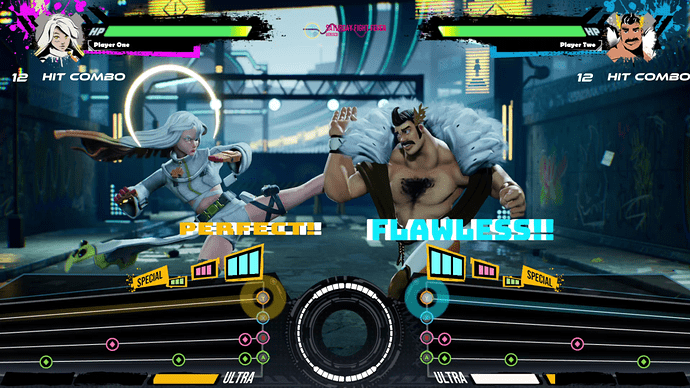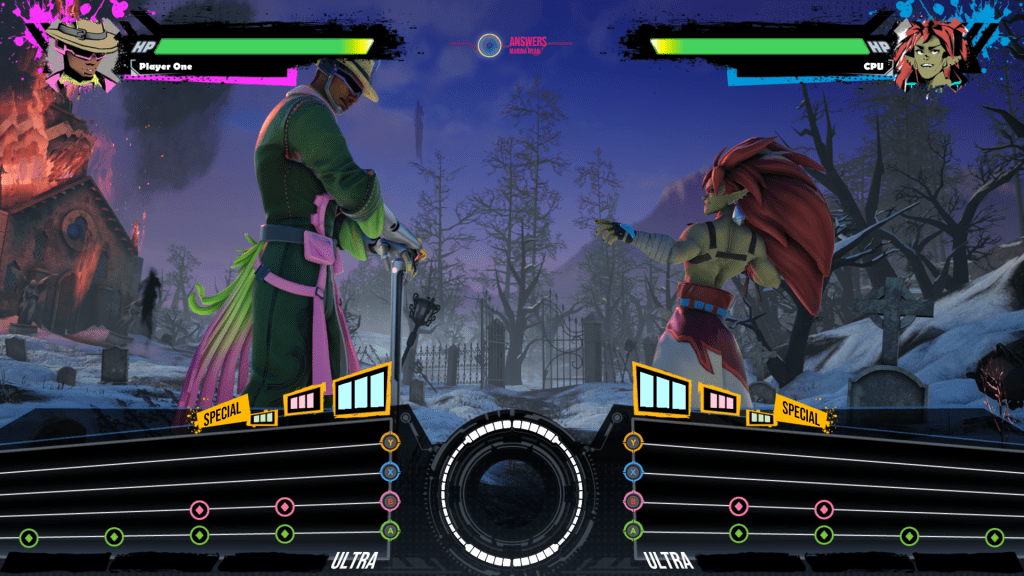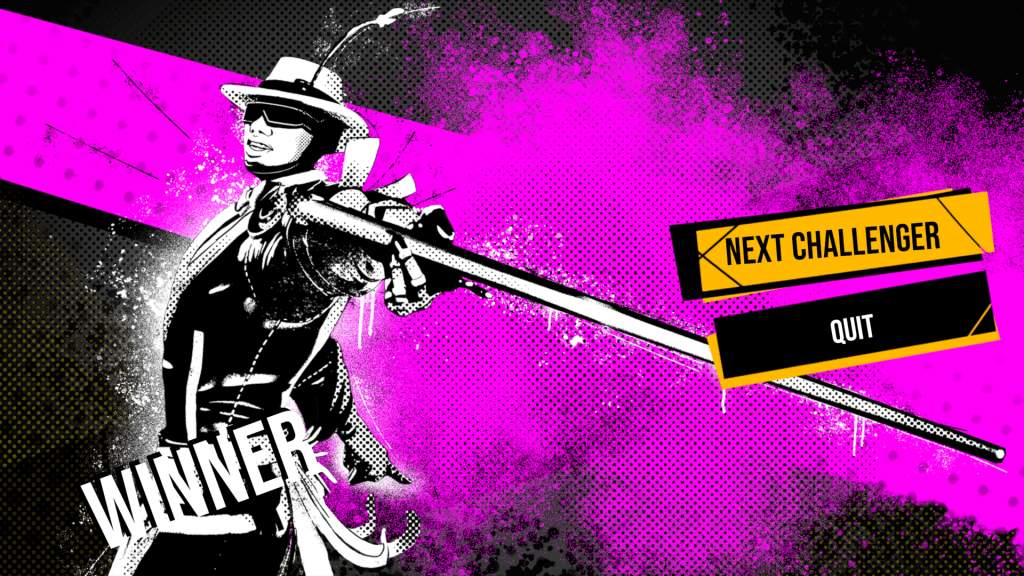Originally published at: Review | God of Rock - XboxEra
Down on your luck, stuck in a dead end job, or maybe you’re just vying for a decent meal—it’s a good thing the God of Rock can help. Developed by Modus Studios Brazil and Published by Modus Games, you’ll be taking up the mantle in helping some of the many characters achieve their dreams in this fighting slash rhythm game hybrid. Kudos to the team (particularly for their first game I believe) for boasting about that first part, because the words ‘fighting’ and ‘game’ usually scare off about 90% of the gaming population. But I would like to tell those people that God of Rock is nothing like those scary Xrds or TEKKENs; in fact its simplified control scheme, kind buffer system, and rhythm gameplay leaves for a unique experience even if I ultimately left it feeling lukewarm.
Clean those guitar strings and bring the electronic duster. You’ll need them to reach your dreams.
Rock ‘n Punch
Modus Studios Brazil takes the idea of rhythm gaming, matching unique sequences of buttons relative to the ‘rhythm’ of the beat and brings that to a fighting game tournament, where players seek to wack each other with specific sequences of buttons (or button mashing) at the right time to knock out the other guy and win the game. It’s a pretty cool idea even if versing an opponent in a rhythm isn’t particularly a new idea—players of yore will remember Guitar Hero’s face-offs, Taiko’s 1 vs 1 mode, or even that one Friday Night Funkin’ that was the talk of the town for a while.
God of Rock seeks to elevate that idea by offering characters with unique abilities that players must use to take out their opponent while rocking it out to the games 40 plus track list, filled to the brim with rock ‘n roll (no vocals, unfortunately). Besides hitting notes to the rhythm of the beat, you’ll use your characters fighting game-esque move list to disrupt the other players performance. The game ends when one player is ultimately knocked out, which means its a fight to the death because the song will only get harder and harder until one of you just can’t keep up.
One thing I like about this game is the dynamic nature of the notecharts it presents the player. Songs have a set difficulty but get easier or harder depending on how the player performs. I feel it keeps for a fair fight but isn’t a crutch to the opponent who may have mastered their character or the song itself. And for what its worth, once your in the groove of the song, it can be pretty fun. I played an hours worth of local multiplayer with my siblings and we kept switching up characters to see who we liked best. I ultimately settled on Johann and Tophat for their damage output and, well, ‘cuz they were cool. Other characters have healing or other specialties that can change the game up pretty well even with the simplified move list and buffer window (a set of time given to input a command for a move).
This Guitar Needs Stringing
So it’s a bit of a shame that the I think the game’s combination, or possibly execution, doesn’t work as well as I would have hoped. There are two games fighting for your attention in God of Rock: a rhythm game and a fighting one. You’re focused on your notes, situated at the bottom corner of the screen, trying to make sure you can keep up with the song. But all the while, you need to KO your opponent to win the round, which means you need to fight. That means often you’ll be dropping musical notes to deal out damage, which can be just as punishing to you as it is to your opponent.
One thing I really don’t like doing is dropping combos in rhythm games, and I don’t feel compelled to engage with the fighting game aspect of God of Rock when I’d rather just be jamming it out. See, even if I focused on the fighter in God of Rock, you still need to actively engage with the rhythm aspect to not lose. In other music games, the best way to punish your opponent was to simply be better at the one game: the rhythm game. And while there is technically complexity, knowing when to best put out a move in a song to make it harder for the other guy, I just ultimately didn’t find it engaging to do so when it would often punish me instead.
The user interface doesn’t help either. On a large screen, I’m more focused on my note taking. But my health bar is all the way on top of the screen. Me having to frequently glance up and down to figure out how the game is going ultimately didn’t cut it for me. On the bright side I would catch glimpses of the fighting the characters do and I gotta say how much I like the aesthetics of the game and the characters. They’re a very charming cast with funny down-in-the-dumps storylines and I am happy to see fighting game characters get good endings in their respective stories for once.
I don’t think the aesthetics translate well to 3D, however, as the models and environments are subject to this vaseline-smeared world and funky looking lighting. Playing this game, I also happened to hear my Xbox’s fans for the first time ever: it was a pleasant if not an adorable little whir. I’m not quite sure where all that power is going though. The audio mixing could use some tweaking too—rhythm games should always prioritise the volume of the song being played as well as the notes being hit and missed, everything else is secondary.
Just That Verse!
God of Rock is a unique rhythm game experience that offers a lot in the way of gameplay options and content. Online and crossplay are also present alongside a custom notetrack maker for songs that easy to use. And even if I like the idea and the aesthetics, I felt that the game doesn’t really know whether to focus on being a fighter or a rhythm game and I ultimately left the game with middling feelings.
With the right tweaks, I think this game could improve greatly. And the team promises content to come in the future, which I will be looking forward to.


